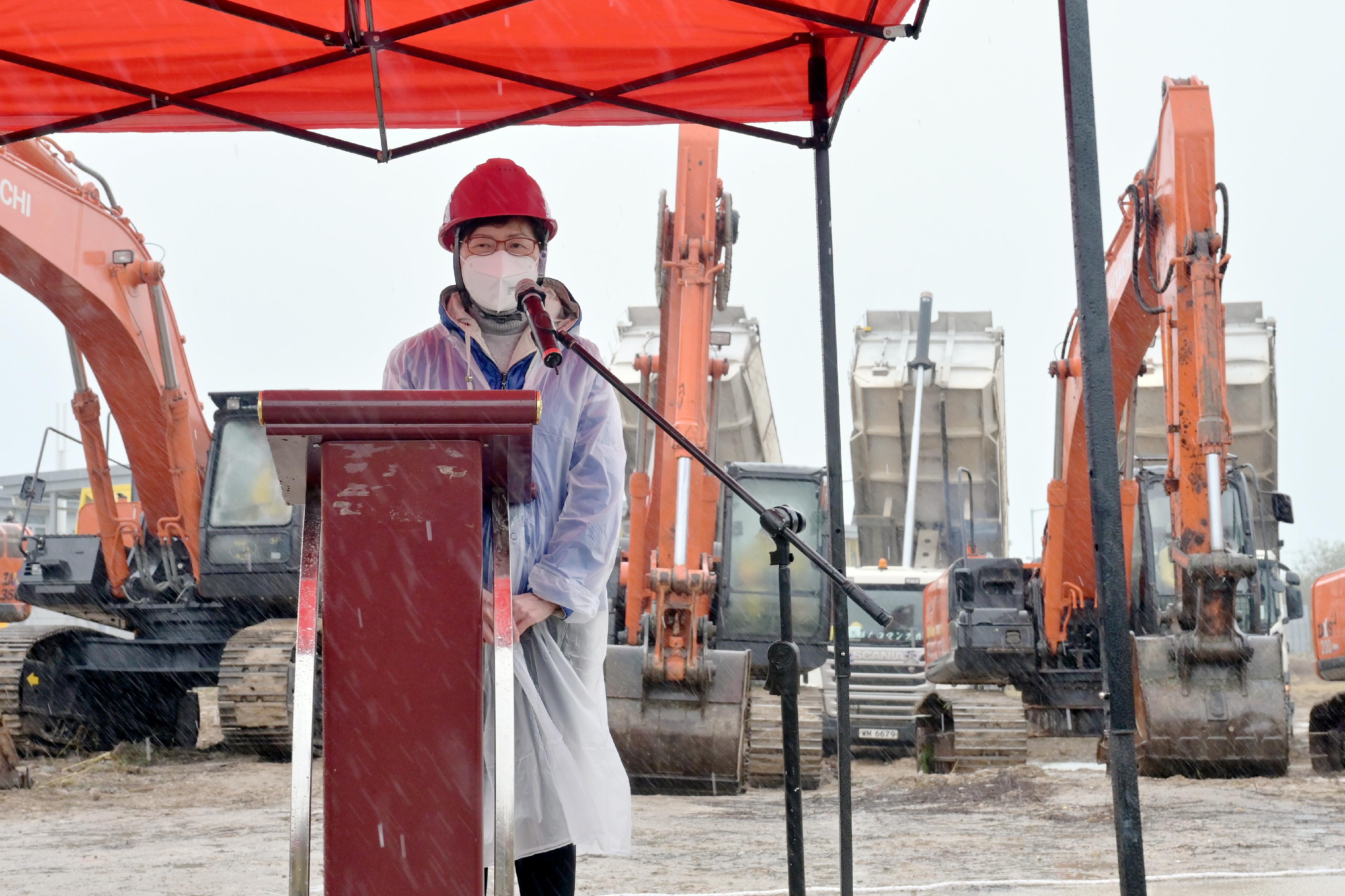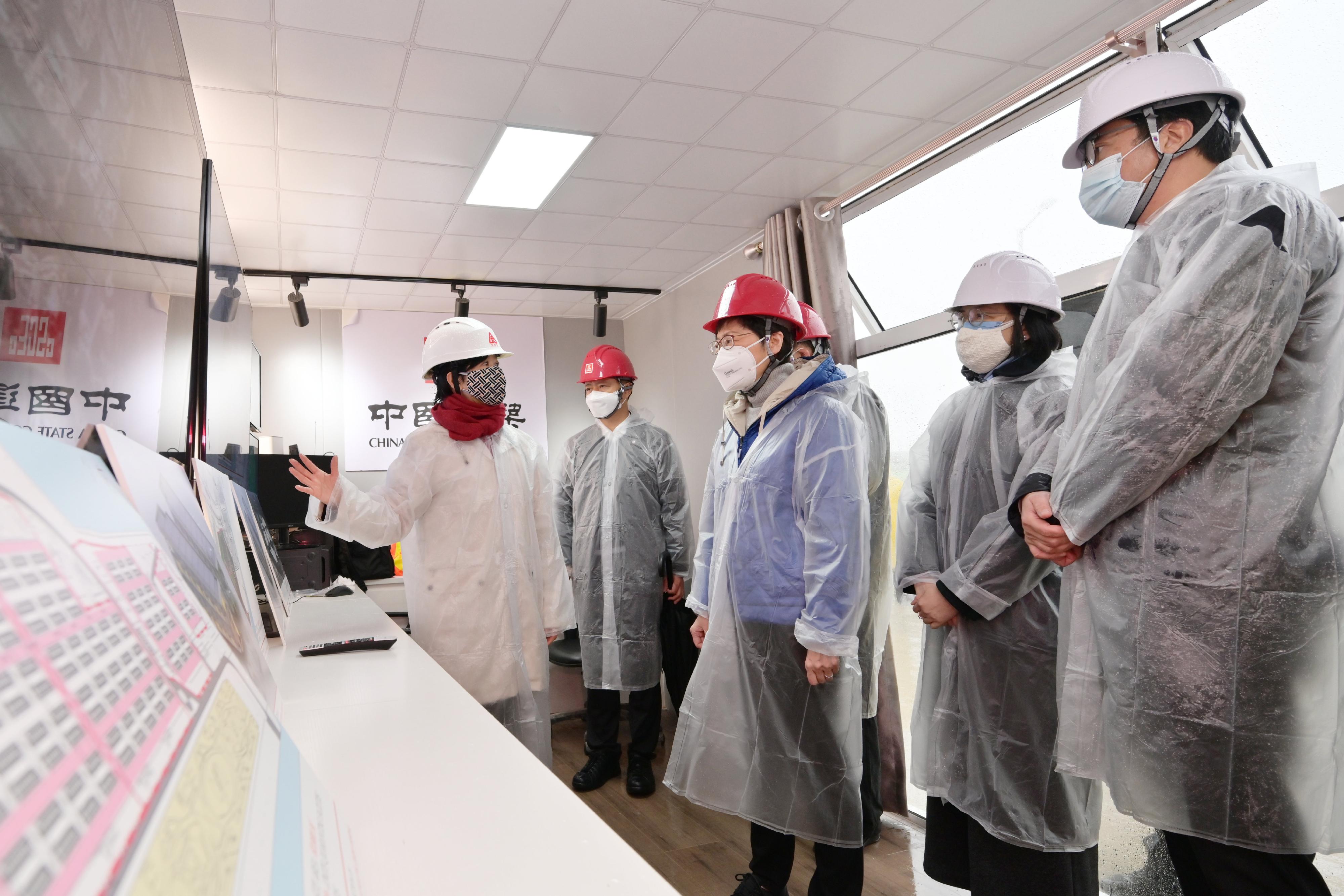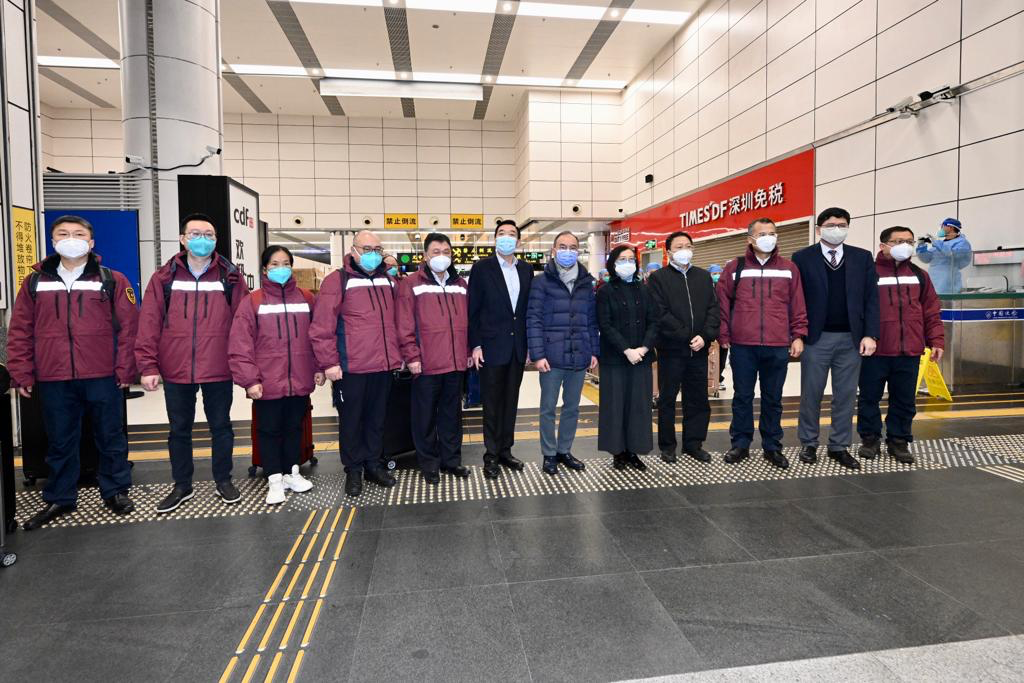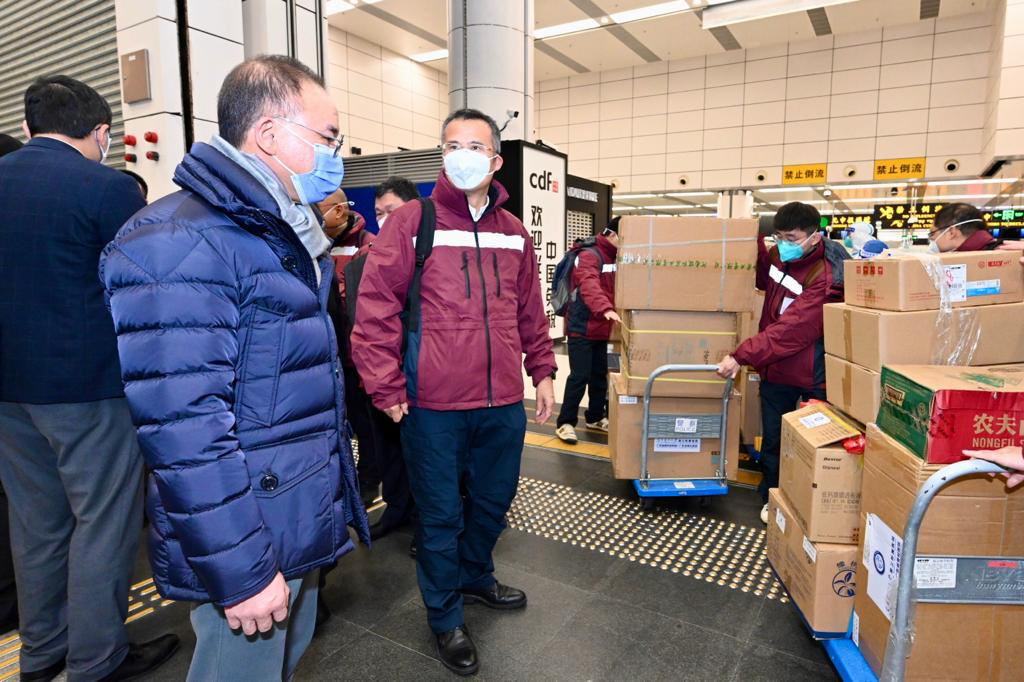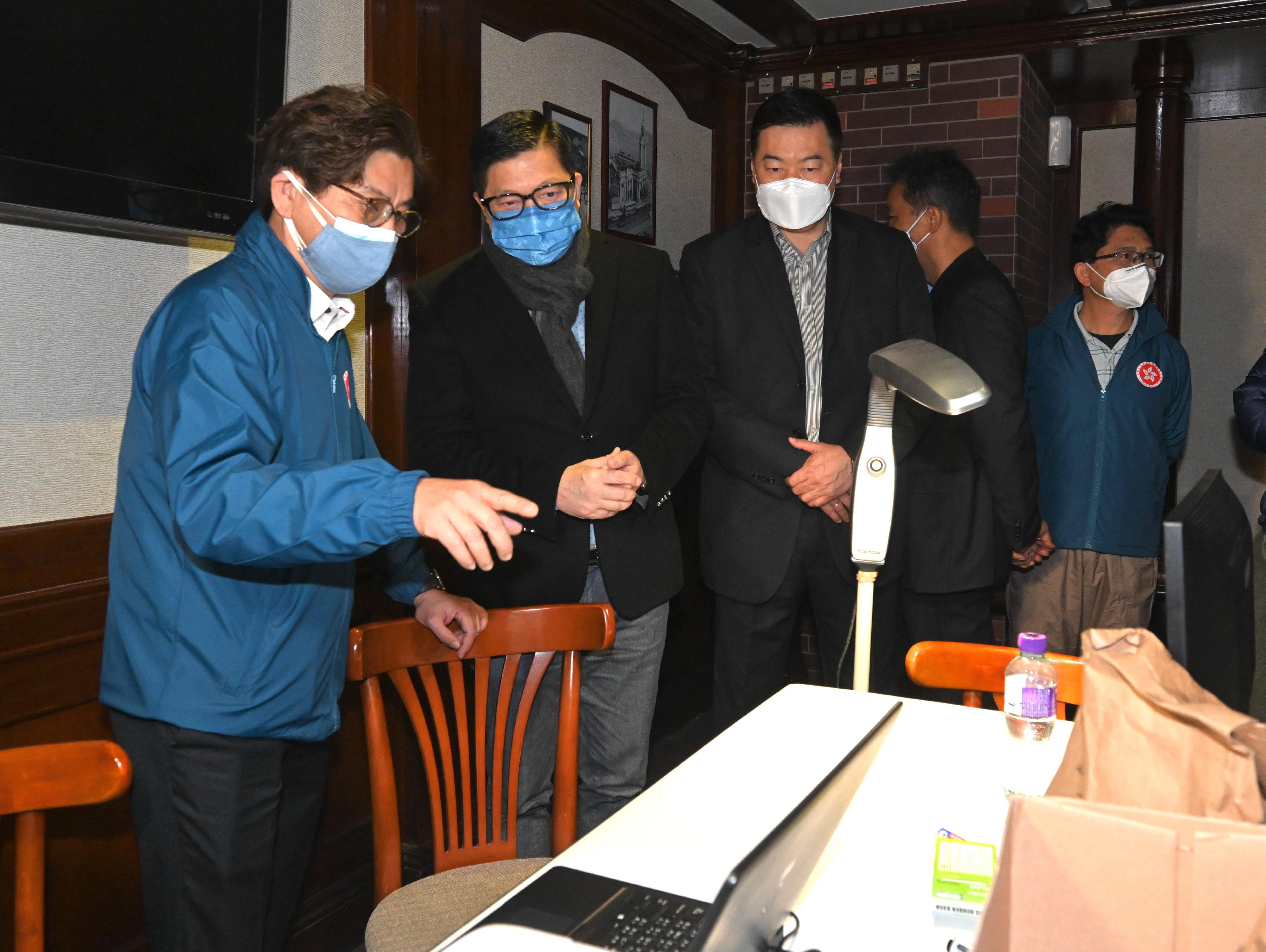The Government exercises the power under the Prevention and Control of Disease (Compulsory Testing for Certain Persons) Regulation (Cap. 599J) and publishes in the Gazette a compulsory testing notice, which requires any person who had been present at 33 specified places during the specified period (persons subject to compulsory testing) to undergo a COVID-19 nucleic acid test.
In view of a number of cases tested preliminarily positive / positive, 33 specified places are included in the compulsory testing notice. The Government strongly reminds members of the public to strictly follow the compulsory testing requirements and undergo testing on time as required. The Government will knock on doors at the specified premises to notify residents of the compulsory testing requirement. Mobile specimen collection stations will be set up in different districts to facilitate testing to be conducted in compliance with the compulsory testing notice. The above compulsory testing requirement applies to those who have completed a COVID-19 vaccination course as well. They are advised to closely monitor their health conditions. They should seek medical attention and undergo testing even if they have only mild symptoms.
Details of the compulsory testing notice are available on the Centre for Health Protection (CHP)'s website via the following link: (www.chp.gov.hk/files/pdf/ctn_20220219.pdf).
Except for tests that, as specified, may be carried out using deep throat saliva sample, persons subject to compulsory testing in accordance with a compulsory testing notice must go to any of the mobile specimen collection stations, community testing centres (CTCs) or recognised local medical testing institutions to undergo professional swab sampling in fulfilling the requirements for compulsory testing. Young children may continue to undergo the test using a stool specimen.
The Comirnaty and CoronaVac vaccines are highly effective in preventing severe cases and deaths from COVID-19. They can provide protection to those vaccinated to prevent serious complications and even death after infection. The Government appeals to persons who are not yet vaccinated, especially senior citizens, chronic patients and other immunocompromised persons who face a higher chance of death after COVID-19 infection, to get vaccinated as soon as possible for better self-protection.
CTCs provide testing services for the public, including free service for persons subject to compulsory testing. Booking and walk-in services are available. Members of the public only need to provide simple personal information on the 24-hour booking system (www.communitytest.gov.hk/en). The system shows the booking status of the centres for the coming two weeks to facilitate the public's planning and selection of a suitable testing centre and a time slot for testing. The testing centres will accord priority to serve individuals with advance bookings. As of 6pm today (February 19), there were around 36 per cent availability for booking places for the coming 14 days. Members of the public may call the testing centres for enquiries on the availability of bookings or walk-in quotas before visiting the centres.
Starting tomorrow (February 20), the Government will set up an additional mobile specimen collection station at the Mini-Soccer Pitch of Kowloon Park. In view of the severe epidemic situation, in order to stop the spread of virus in the community as soon as possible and reduce the number of people waiting at the service points for testing, ticketing machines have been installed in a number of service points for on-site ticket arrangement. Depending on the actual situation of different sites, such ticketing arrangement will be made available at more suitable service points for testing. Members of the public can visit the CTC website (www.communitytest.gov.hk/en) to check the real-time queueing ticket status of relevant service points for testing.
Testing services will be provided by CTCs and mobile specimen collection stations at a total of 61 places in various districts tomorrow. Persons subject to compulsory testing may conduct free testing at CTCs or mobile specimen collection stations (if the service scope is applicable). The opening dates and operating hours of the mobile specimen collection stations are stated in the Annex.
Persons subject to compulsory testing may choose to undergo testing via the following routes:
(a) For tests which require using a sample taken through combined nasal and throat swabs
1. To visit any of the mobile specimen collection stations (see the list and target groups (if applicable) at www.coronavirus.gov.hk/eng/early-testing.html) for testing;
2. To attend any of the CTCs (see the list at www.communitytest.gov.hk/en);
3. To self-arrange testing provided by private laboratories which are recognised by the Department of Health (DH) and can issue SMS notifications in respect of test results (see the list at www.coronavirus.gov.hk/pdf/List_of_recognised_laboratories_RTPCR.pdf), and the relevant sample must be taken through combined nasal and throat swabs; or
4. To use a specimen bottle distributed to the relevant specified premises by the CHP (if applicable), and return the specimen bottle with the stool sample collected as per relevant guidelines.
(b) For tests which may be carried out using deep throat saliva sample, or for persons holding a medical certificate issued by a registered medical practitioner proving that they are unfit to undergo testing using a sample taken through combined nasal and throat swabs because of health reasons
1. To obtain a deep throat saliva specimen collection pack from any of the 120 post offices, vending machines set up at 20 MTR stations or 47 designated general out-patient clinics (GOPCs) of the Hospital Authority and return the specimen to one of the designated specimen collection points (see the distribution points and times, and the specimen collection points and times, at www.coronavirus.gov.hk/eng/early-testing.html);
2. To undergo testing at any of the GOPCs of the Hospital Authority as instructed by a medical professional of the Hospital Authority; or
3. To self-arrange testing provided by private laboratories which are recognised by the DH and can issue SMS notifications in respect of test results.
A spokesman for the Food and Health Bureau cautioned that testing received at the Accident and Emergency Departments of the Hospital Authority or during hospital stays, or testing provided by private laboratories which cannot issue SMS notifications in respect of test results, does not comply with the requirements of the aforementioned compulsory testing notice.
"If persons subject to compulsory testing have symptoms, they should seek medical attention immediately and undergo testing as instructed by a medical professional. They should not attend the mobile specimen collection stations or the CTCs."
Persons subject to compulsory testing must keep the SMS notifications containing the result of the test and the relevant medical certificate (if applicable) for checking by a law enforcement officer when the officer requires the persons to provide information about their undergoing the specified test.
Furthermore, persons subject to testing under the compulsory testing notices should, as far as reasonably practicable, take appropriate personal disease prevention measures including wearing a mask and maintaining hand hygiene, and, unless for the purpose of undergoing the specified test, stay at their place of residence and avoid going out until the test result is ascertained as far as possible.
Any enquiries on compulsory testing arrangements may be addressed to the hotline at 6275 6901, which operates daily from 9am to 6pm. If persons subject to compulsory testing plan to conduct testing at any of the CTCs, they can check the centre's appointment status in advance. The hotlines of the CTCs are available at www.communitytest.gov.hk/en/info.
The Government will continue to trace possibly infected persons who had been to the relevant premises, and seriously verify whether they had complied with the testing notices. Any person who fails to comply with the testing notices commits an offence and may be fined a fixed penalty of $10,000. The person would also be issued with a compulsory testing order requiring him or her to undergo testing within a specified time frame. Failure to comply with the order is an offence and the offender would be liable to a fine at level 4 ($25,000) and imprisonment for six months.
The spokesman said, "The Government urges all individuals who are in doubt about their own health conditions, or individuals with infection risks (such as individuals who visited places with epidemic outbreaks or had contact with cases tested positive), to undergo testing promptly for early identification of infected persons."
